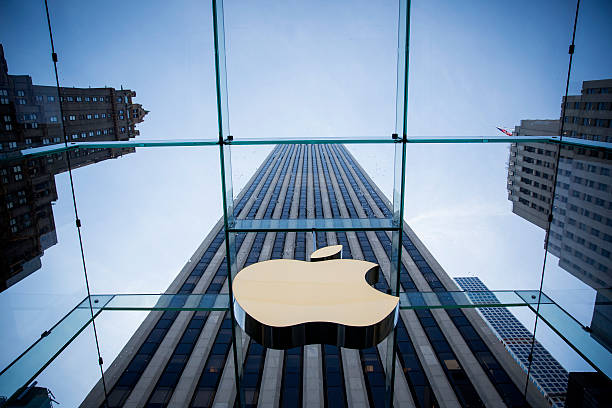Apple is offering rare discounts on iPhones in China as part of a four-day promotion to attract shoppers during the Lunar New Year period. The move is in response to rising competition from local brands like Huawei, Vivo, and Xiaomi, as well as economic challenges.
Apple Faces Growing Competition in China, Offers Discounts to Attract Consumers
In a bid to maintain its position in the highly competitive Chinese smartphone market, Apple is offering discounts on its iPhones for a four-day promotion starting January 4. The company is offering discounts of up to 500 yuan ($68.50, £55.30) on its latest models, including the iPhone 16 Pro and iPhone 16 Pro Max, which typically retail for 7,999 yuan and 9,999 yuan, respectively.
The promotion comes at a time when Chinese consumers are becoming more value-conscious due to economic challenges, making discounts a key tool for attracting buyers. Apple’s strategic shift towards offering price reductions in the Chinese market aims to appeal to shoppers hesitant to spend during a period of slowing economic growth.
Rising Local Competition and Changing Consumer Behavior
This move also highlights the growing competition from local tech giants such as Huawei, Vivo, and Xiaomi, all of which have been actively cutting prices to gain market share. Huawei, for example, has slashed prices of its high-end smartphones by as much as 20%, signaling a shift in strategy to appeal to cost-conscious consumers ahead of the Lunar New Year holiday.
Apple’s approach to offering discounts marks a notable shift in its strategy, adapting to the changing behaviors of Chinese consumers. Will Wong, senior research manager at International Data Corporation (IDC), explains, “Apple’s strategy has changed to adapt to Chinese consumers’ value-seeking behavior. Price discounts have become more attractive in this market.”
The Effect of Economic Challenges on Consumer Spending
The ongoing economic challenges in China have made consumers more cautious about their spending, prompting retailers and manufacturers across various industries to offer discounts. This includes not only smartphone brands but also companies in sectors such as online retail and car manufacturing.
Despite offering discounts, Apple faces rising pressure in the Chinese market. Its share of the smartphone market has been shrinking, as local brands gain traction. Apple’s strategy of offering temporary price reductions could help it regain some consumer interest, but long-term success may depend on its ability to adapt to the increasing competition from brands like Huawei, Vivo, and Xiaomi.
Market Trends and Local Brands Gain Ground
Apple’s market position in China took a hit in 2024, with its sales dipping slightly by 0.3%. However, it managed to re-enter China’s top five smartphone makers in the third quarter of 2024. IDC research indicates that Vivo led the market, with sales surging over 20%, while Huawei saw a significant resurgence, with sales increasing by more than 40%.
This fierce competition is further driven by local brands launching flagship devices equipped with advanced features, despite challenges such as US restrictions on Huawei. Ivan Lam, a senior analyst at Counterpoint Research, notes that nearly every major player in the market launched a flagship device in the last quarter, intensifying the competition for consumer attention.
As Apple grapples with rising competition and shifting consumer behaviors in China, its decision to offer discounts reflects a broader trend in the smartphone market. The promotion may offer a short-term boost in sales, but ongoing competition from local brands like Huawei and Vivo, along with economic uncertainty, will continue to shape the landscape for Apple in China.
